Whether it’s the legal and formal stuff or the fun and quirky things – everyone should read this compilation before setting foot in Germany.
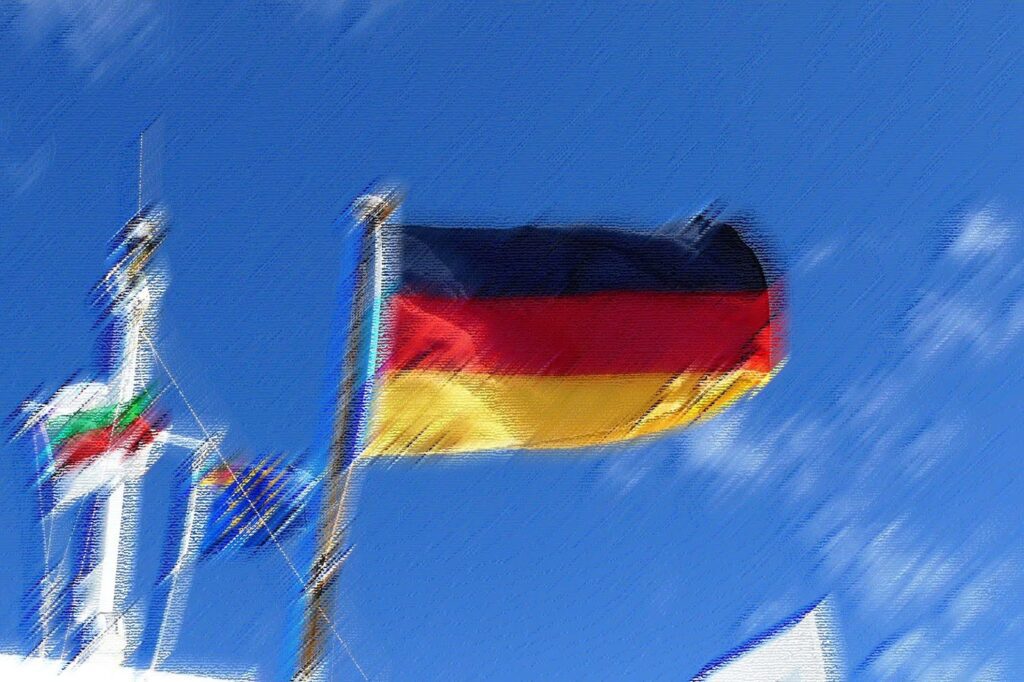
I’m listing relevant figures and important rules and regulations. But I’m also pointing out unpredicted peculiarities and fun facts to know before you go. This way, no unexpected surprise will impair your experience.
Visa and Entry Requirements
Germany is part of the Schengen countries so, from many countries, you can enter visa-free.
To enter Germany, in general, you need a passport that is valid for at least four months from your date of arrival.
For citizens of EU countries, a valid identity card is sufficient.
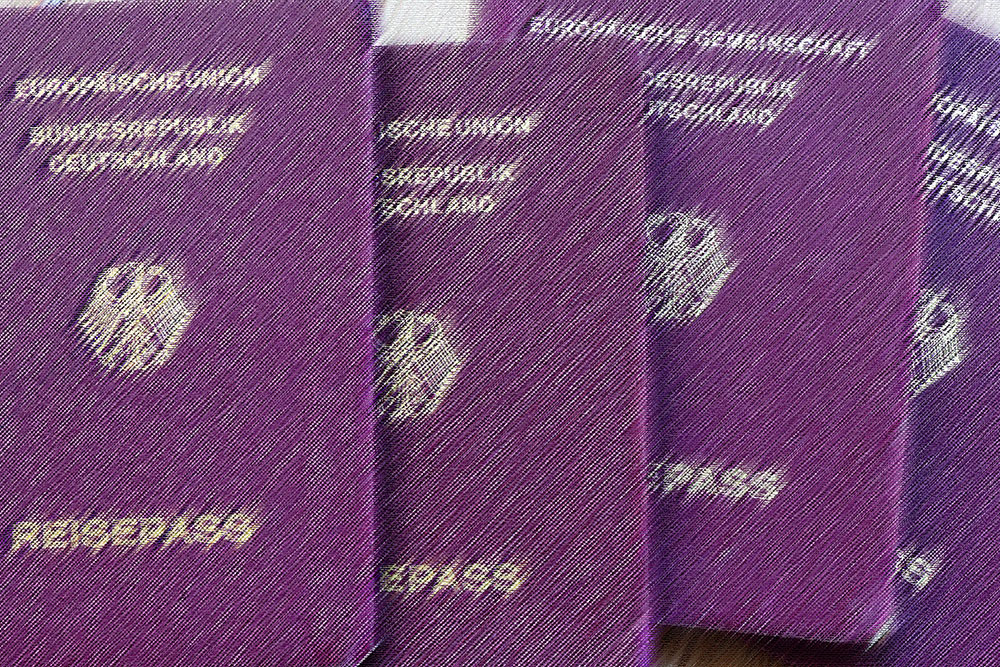
However, on the website of the German Ministry of Foreign, you can quickly and dependably check which entry requirements apply to you.
They also have a list of German consulates and embassies. There you can get information and file an application in your country.
Once in Germany, I hope you won’t find yourself in a situation that requires diplomatic assistance. But if so, there is a list of foreign diplomatic missions.
Best Time to Visit
This really depends on what you intend to do and see. Of course, city tours are only half the fun if it’s pouring. On the other hand, in big cities, you’ll find more indoor activities such as museums and churches to visit.
I’d say that for city breaks, shoulder seasons like April to June and September till mid of October are best.
If you come for cycling, hiking, or other outdoor activities, you should opt for the early and late summer months.

I just published a series on five German islands. There is the Baltic and the North Sea, latter with the fascinating phenomenon of low and high tides. As the water disappears during low tide, you can walk around on the spot where only a couple of hours earlier you took a swim in high waves.
At some places – like Cuxhaven and the island of Föhr – you can even hike to an island while the tide is low. A once a lifetime experience.
In general, beaches are more enjoyable in Summer, obviously.
Joy of Winter
Whereby, I personally like also the beaches in winter. There is a really unique atmosphere as you walk on the frozen sand, the wind and the sea spray blowing in your face, seagulls screeching. Eventually, you defrost at a cozy café over a Glühwein, mulled wine, or a Pharisäer, coffee with rum under a hood of whipped cream.
If you’ve never experienced it, try it out, it’s a wonderful experience.
Winter is not only great for skiing, but of course also for the famous Christmas markets. They are all over the country, whereby the most famous and traditional should be the one in Nürnberg. But don’t worry, every tiny town has its own market with Glühwein and Schmalzgebäck, deep frying dough, and incense smokers, and other more or less tasteful nick-nacks.
Mind you, the Christmas market season starts middle of November.
So, yes, it totally depends on what you are up to when picking the perfect Germany-season. But be aware that seasons are not really predictable. It can be around 14℃ on a warm December day as well as on a cold June day. Summers can be something between 17℃ in a bad, cold summer and up to 36℃ in a hot one. So you always better have a backup plan for your stay.
Temperature
One last observation: Especially during those hot summer days, you’ll notice that Germans are not very much into aircon. Actually, they exist only in some public buildings, means of transportation, stores, most hotels, and some restaurants. Usually, they are not adjusted to extremely low temperatures. Unlike some countries where your sweat freezes indoors to a thin ice crust on your skin as soon as you enter a store or cinema.
When it’s hot, we are sweating, not freezing.
By the way, according to my Spanish teacher, even in Winter, you suffer rather from the heat than from the cold since people tend to overdo it with the heating; I often think of him when I’m stewing in my own juice on the subway mid of January….
Sizes and Structures
Germany has a size of 357.021 square kilometers which equals 137,847 square miles.
I converted this for you in case you’re not familiar with the metric system. It is used in Germany – as well as all over continental Europe.
In my post World’s Most Complete Travel Info, you’ll find a link to a very extended conversion chart. It includes conversions of basically everything that requires any sort of measurement.
Federal States
Germany has about 81 million inhabitants. Since the reunification in 1990, these good people live in 16 federal states. Before that, there were 11.
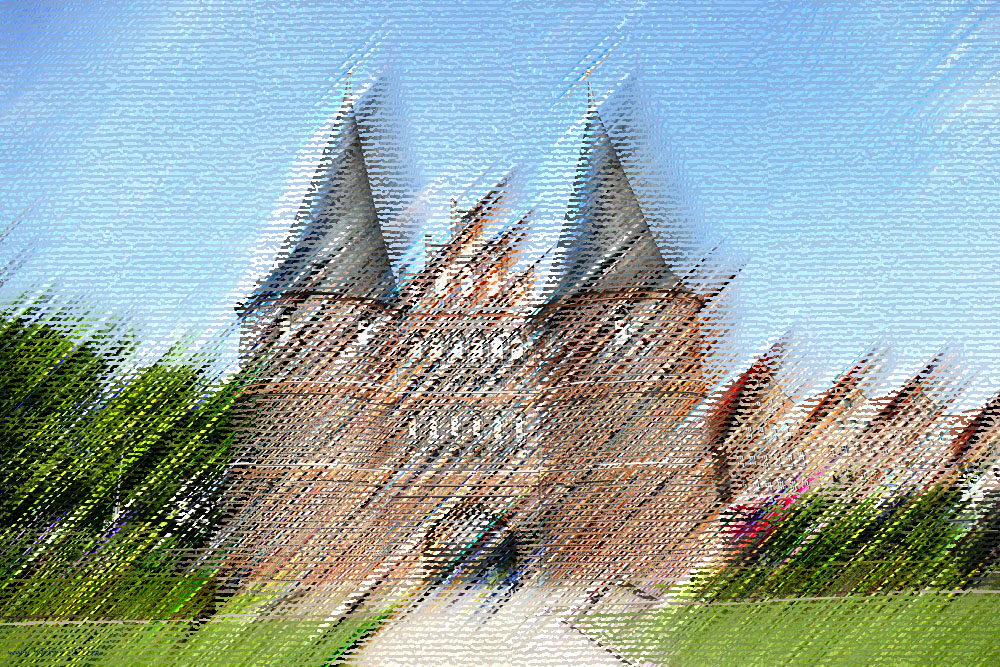
Germany is by no means landlocked, but has access to two waters. There are the North Sea and the Baltic which are both epicontinental seas and connected with the Atlantic ocean. On those northern coasts, you have the federal states of Schleswig-Holstein, Mecklenburg-Western Pomerania, and Lower Saxony. The latter is home to the world-famous Volkswagen. Locked between these three territorial states is the city-state Hamburg and in Lower Saxony the even smaller city-state Bremen.
South of Lower Saxony is North Rhine-Westphalia, where you’ll find among others Cologne and the former German capital Bonn. To the West is Hesse with the city of Frankfurt being Germany’s financial center and home to the country’s largest airport.
Rhineland-Palatinate and the Saarland in the southwest are famous for good food and excellent wine. Their neighbor Baden-Wuerttemberg is exporter of the famous Mercedes Benz. In the South, Bavaria pampers the world with BMW – and the mountains and the Octoberfest and all these other German clichés.
In the East, the former GDR, are Saxony-Anhalt, Saxony, Thuringia, and Brandenburg. Mecklenburg-Wester Pomerania, which I’ve mentioned above, also used to be in the GDR.
Berlin, since the reunification again Germany’s capital, is also a city-state and located in the middle of Brandenburg.
Neighboring Countries
Germany borders nine countries: Poland, Czechia, Austria, Switzerland, France, Belgium, Luxemburg, the Netherlands, and Denmark.
With these neighbors, it actually forms unbelievably seven trijunctions, i. e. tri-border-regions!
My favorite one, by the way, is the one between Germany, Switzerland, and France. Not only can you cross borders walking or on public transport. You can also choose in which country you set foot right at the airport by walking through the respective exit.
This a fabulous example that shows how borders are pretty much random – and also a bit absurd.
Coasts
As I emphasized above, Germany is not landlocked. Mecklenburg-Western Pomerania is in the Baltic region and Lower Saxony’s shores border the north sea. Schleswig-Holstein is nestled between both. In total, Germany’s coast is 2.389 kilometers long and consequently longer than the Portuguese one.
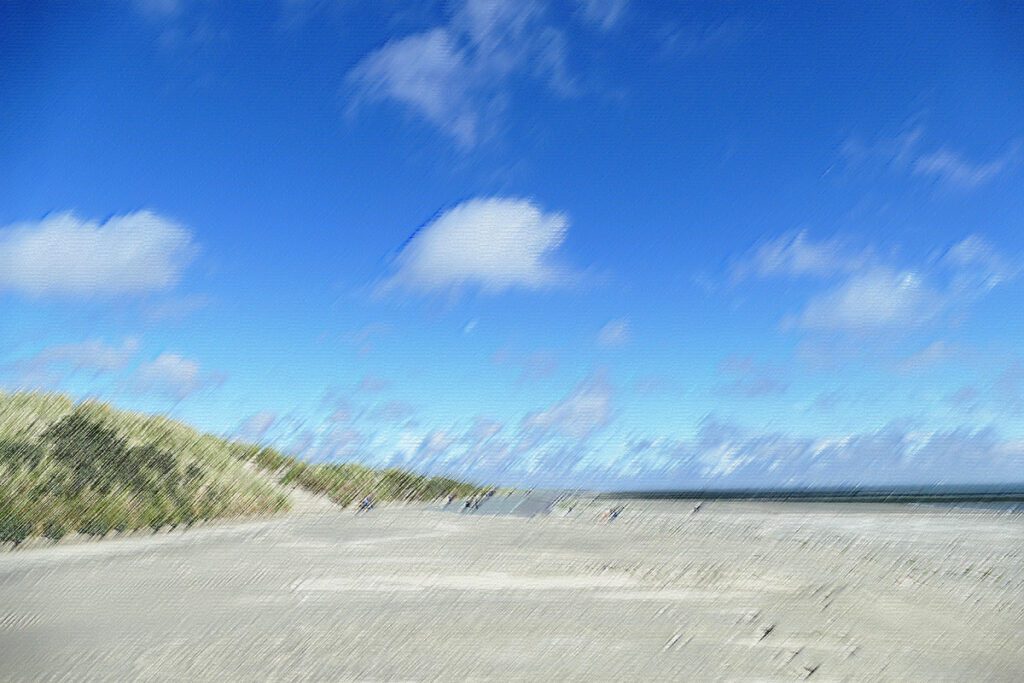
Islands
Where there’s water, there are islands. Actually, there are 51 islands in the Baltic and 26 in the North Sea – and ten additional islets called Halligs. Also, there is a number of lake and river islands.
Rivers
River islands need rivers, and I’ll list the five longest and probably most famous ones. But mind you, since water is running freely and rivers need to empty into seas, these rivers don’t stop at the German border. Therefore, I state also how long they flow on German territory so no one gets offended.
The longest one is the river Rhine which has its source in Switzerland. It is 1.233 kilometers long, but only 865 kilometers are humidifying German soil.
The river Weser is flowing 744 kilometers solely in Germany.
The river Elbe has its source in the Czech Giant Mountains. From there, the Elbe flows on 722 kilometers among others through Dresden and Hamburg all the way to Cuxhaven. There she empties into the North Sea.
The Danube is Europe’s second-longest river, flowing through ten – yes: ten! – countries and empties into the Black Sea. She’s 2.857 kilometers long, but only 647 are within the German borders.
524 kilometers make the Main Germany’s fifth-largest river.
Mountains
While I constantly astonish people with the info on German islands, everybody expects mountains, mainly in Bavaria. As a matter of fact, Germany’s highest mountain, the 2.962 meter high Zugspitze, can be climbed right at the border to Austria.
But there are also the internationally lesser-known mountains like the Ore Mountains in Saxony and the Harz, stretching across Lower Saxony, Saxony-Anhalt, and Thuringia.
And now that we are covering the German clichés, I will not spare you the information that there are more than 1,500 breweries in Germany. Most of them are located in Bavaria, obviously.
Cities
The international statistics conference defined in 1887 that a major city has more than 100,000 inhabitants. Henceforth, there are 81 major cities in Germany, whereby the five largest are
Berlin – the busy, hip capital that breathes history at every corner. Whether during the crazy, exciting 20s, the horrific war years, the post-war division – has over 3.6 million inhabitants. It also is one of Germany’s tourist hotspots.
Hamburg – an elegant metropolis on the river Elbe, home to Europe’s third-largest harbor. By train, Hamburg is only 90 minutes away from Berlin and has 1.9 million inhabitants. It is the perfect gateway to the German shores.

Munich – Bavaria’s capital, home to almost 1.5 million inhabitants, is probably one of the most popular cities among international visitors. Here they find all the clichés such as Beer, Bratwurst, and Blasmusik, traditional brass-band music. Also, Munich is a great gateway to the scenic mountainous region.
Cologne – home to 1 million Jecken, carnival-revelers, the region is infamous for the carnival, but also for the Gothic Cathedral next to the river Rhine. Also, Cologne is known for its vigorous LGBTQ community.
Frankfurt on the Main – mind you, there is also a Frankfurt on the Oder, bordering Poland – has over 750,000 and is Germany’s finance center. For decades, the city had a really bad reputation due to the notorious Bahnhofsviertel, the neighborhood around the main station. While his quarter is definitely not a recreational area, there are very nice neighborhoods and a very active art scene.
Bigger isn’t better
According to my experience, it’s the same in most parts of the world: The metropoles are similar due to the chain stores, chain restaurants, the whole globalization. The smaller the place, the closer you get to the more genuine, typical Germany. And many of those are true jewels and not to be missed. Be it Bamberg in Bavaria, Münster in the center, or Lübeck all the way up north close to Denmark.
Normally, as you arrive at a city, whether by train or by plane, there should be a tourist information office or at least a display with free maps and information that help you to get around. Also, there will always be some shops and fast-food restaurants open, even on Sunday. This is worth mentioning, but we’ll get to the German opening hours later.
Cleaning up
I’d also like to mention another thing that’s said about Germany – it’s said to be squeaky clean. Well, it might be cleaner than some cities in so-called developing countries. However, it’s definitely not cleaner than other European cities. Nevertheless, Germans are very aware of the environment and usually do not throw trash around. There are many trash cans all over the place. But even if there aren’t any in sight, you’ll probably won’t see anybody just drop their trash.
You might see people putting cans or empty bottles next to the trash bins. That’s not because they are untidy but because they want to make it easier for bottle collectors. In Germany, you have to pay a deposit of 5 to 25 cents when buying mineral water, soda, and beer. Hence, homeless and very poor people search the trash bins for empty containers. Obviously, that is pretty gross and can even be harmful to them. Therefore, people leave them next to the bin to make it a bit easier for them.
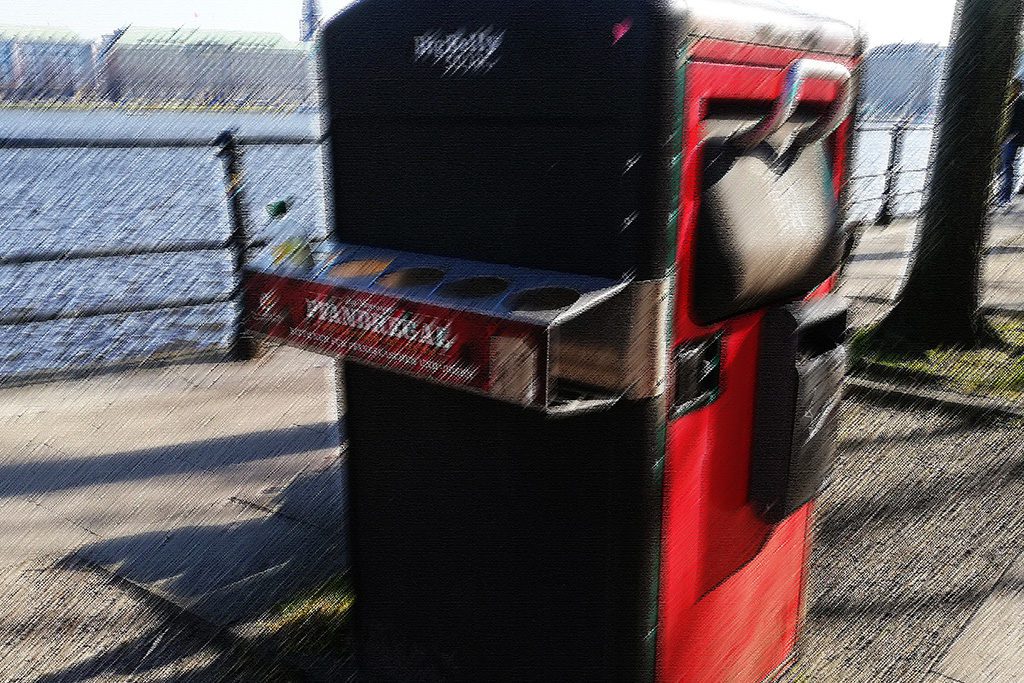
Also, there are now bins with a kind of tray around that serves as a holder for empty bottles. I love that and find it so considerate.
Recycling
Talking ’bout considerate: Not only has Germany been four times the world champion in soccer, Germans are also the world champions when it comes to recycling. 65 percent of German household waste is being recycled. In residential areas, you’ll spot those big containers, but also regular trash bins on streets are often divided.
I think that’s a really good habit to pick up and bring home as an intangible souvenir from Germany.
In the chapters on restaurants and shopping further below you’ll read what other measures are taken to enhance the environment.
Getting There and Around
Planes
Many international visitors are coming to Germany by plane and are probably arriving at one of the five largest airports. Those are Frankfurt, Munich, Düsseldorf, Berlin, and – to my surprise since it deems so provincial – Hamburg.

If these are not your final destinations, you might carry on by a domestic flight. There are a couple of low-cost airlines operating between German cities and also metropoles in other European countries. Paying something between 50 and 100 €uro for a roundtrip is not unusual. Of course, at that price, you are only allowed hand luggage of a certain weight’n’size. Also, you cannot choose your seat, and refreshments are not included. But normally you are flying for about one to two hours, so just get a glass of water before boarding.
The fact that flights in Europe are dirt cheap might be good for your wallet, but it’s bad for the environment.
Anyway, the three most popular low-cost airlines are Eurowings – with almost 50% market share – followed by Ryan Air, and easyJet. Regarding service and commodity, Eurowings is much better than the other two.
Trains
Albeit the Italian saying puntuale come un treno tedesco – punctual like a German train – is more than outdated, presumed it ever was true, it is not as bad as Germans claim it to be. Yes, there are some delays. Sometimes the aircon fails – preferably in Summer – or the heater is not working – happens in Winter. But in general, it’s pretty well organized and reliable. However, taking the train in Germany is not cheap.
But there are pleasant exemptions. In general, there is a contingent of tickets sold 90 to 3 days before your travel date. These tix start at 29 €uro, but there are some strings attached. For instance, you have to choose a specific train respectively a certain connection and stick with it; unless you have to change it due to their fault like delays, etc. Also, the nature of a certain contingent is that it sells out. So if you can determine a specific date and time, hurry to your computer and book your trip.

Mind you that children under 15 travel free in the company of their parents and grandparents. When travelling in the company of others who are not their relatives, they pay 50%.
On their page, they also advertise special rates, so make sure to check it out before booking.
Best Bargain
One of the best bargains is the so-called Ländertickets. These tickets are valid for one day in a specific federal state. Every federal state has its own and the cost varies from about 24 to 29 €uro. The best thing is that up to four more people can travel with you on the same ticket. Those fellow travellers pay just about 5 €uro each. So maybe your trip won’t be the more the merrier, but certainly the more the cheaper.
There are three ways to buy a train ticket. The first one is at a ticket counter at a station – which is equal to torture. It takes forever since tellers are few and lines are endless.
But there are ticket machines at the stations and you can choose at least English if not some more languages. Sometimes, there are some officials to help, but not always.
Actually, I’d say, and this probably won’t be a surprise for you, the best way is to book tickets online. Also, this way you get the best deal. Mind you, you have to book your special deal three months to three days before your trip. You can print your ticket out or have it on your phone. When booking, you have to define some sort of identification that you have to show the inspector together with your ticket.
Buses
Talking ’bout bargains: Long-distance buses are getting really popular in Germany – and in Europe in general. Flixbus sort of revolutionized travelling by bus by selling dirt-cheap tickets between destinations all over Europe.
To give you an example, trips from Hamburg to Berlin start at 9 €uro. Yes, the trip takes twice as long as going by rapid train. Yet, you pay a fraction of that fare.
Just like taking the train, bus companies have certain contingents that sell out. So here, too, you should book as soon as possible to get the best prices.
Flixbus has an excellent website where you can check all the routes and book tickets.
Public Transportation
In general, public transport in German larger cities is very good, in smaller ones it can be a bit frustrating. However, even in the most remote village, there will always be some sort of bus.
But in big cities, you’ll find buses, subways, and tramways. Most companies have a good website with a search mask so you can check the schedule and the fare. While public transport is good and reliable, it is not cheap. Usually, a single trip puts you back 2 to 3 €uro. However, in many cities, you can buy a day pass for about 6 to 8 €uro. There are even passes for groups. Of course, tourist passes often include public transport. This way, you can at least save a little.

Mind you that in some cities – like e. g. Berlin – you have to validate your ticket.
There are no barriers at stations, you just get on the train.
But don’t let this fool you, there are unexpected ticket controls. Obviously, you’ll have to pay a fine if they catch you without a valid ticket.
On platforms, it is customary to let people get off before you enter. If a train is really packed, the passengers standing at the doors do step aside and let others get off. They might even get off themselves to make room. Therefore, you should not stand too close or even right in front of the doors.
Another thing you shouldn’t do in Germany, and nowhere else, for that matter, is putting your feet on the seats. That’s a big no-no and there will definitely be someone scolding you.
Driving and Cycling
If for whatever reason you prefer to drive, there are, of course, many car rental companies. Mind you, gas is pretty expensive in Germany, and at least in big cities, parking space very limited and pricey.
A good alternative – even in big cities – is cycling. Being a visitor, you probably don’t have your bike with you. That’s not a problem since you can always rent one.
Many hotels have bikes as a service for their guests.
Also, call a bike-bicycles that you get at rental stations all over the city, are very popular. You either register or you choose a day pass that’s good for 24 to 72 hours.
They are to be found in 42 cities. You can get all the relevant information on their pretty informative website – also in English.
Sharing is Caring
In the same way works car sharing that is getting very popular in all larger cities.
There are stations where cars need to be picked up and returned to. In certain districts, you can pick up or return the car at any convenient place.

If you spot a car, you can rent it via chip or app right away. Alternatively, you can search online or via a smartphone app for the next available vehicle. Short-Term reservation guarantees availability.
Some providers are backed by famous car manufacturers such as BMW for DriveNow or Daimler for car2go.
So if you are keen to drive a Mercedes Benz in Germany, here’s your chance.
Obviously, you can also rent E-Scooters. Choose between the traditional ones with the Italo-feel to them and those newer ones that you are standing on.
Cabs
Of course, it’s very comfortable just calling a cab and getting from A to B. Comfy – yes, but also pretty expensive, more expensive than in many other European cities.
However, recently, the car-sharing service MOIA was introduced by Volkswagen first in Hannover – the company’s second home – and eventually in Hamburg. I’m positive that they will expand. Therefore, make sure to check their website to see if they already reached other cities.
Basically, they work like a Latin American colectivo, only that the vehicles are brand new and spacious. You book your trip through an app and then travel together with other passengers going in the same direction. It’s much faster than the subway or a bus and much cheaper than a taxi cab.
Cash and Cards
As you probably know, in Germany, you pay with Euro just like in 24 other European countries. There are bills worth 5, 10 20, 50 100, 200, and 500 €uro and coins of 1, 2, 5, 10, 20, and 50 cents as well as 1 and 2 €uros. In Europe, coins can actually be worth something – the 2 €uro-coin equals 1,77 US Dollars. Hence, it’s not just some worthless piffle as in some other currencies.
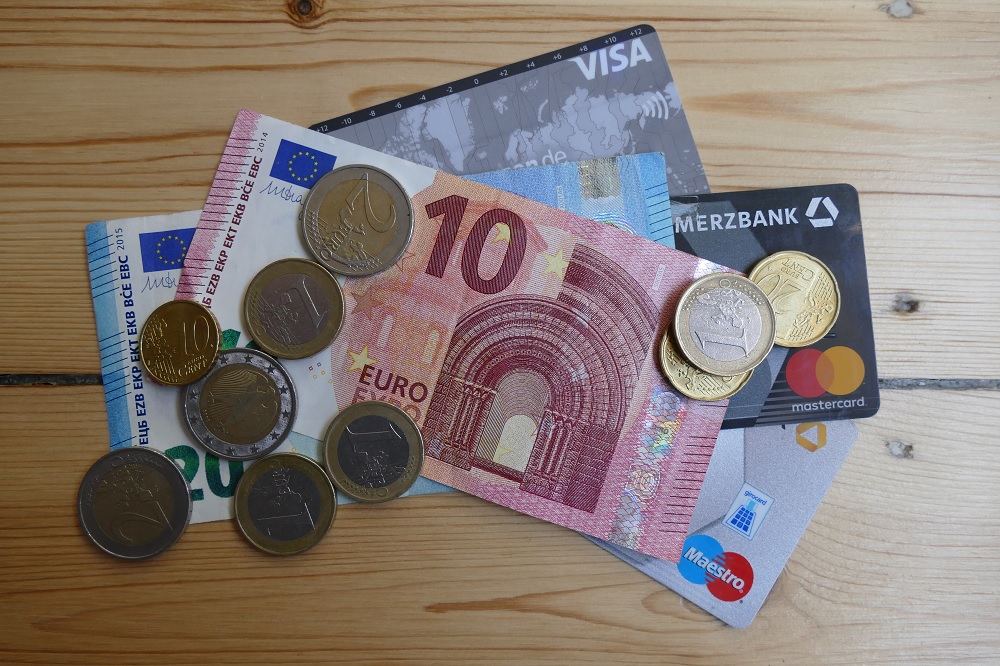
In Germany, credit and debit cards might be a bit less popular than for instance in Scandinavia or the Baltic countries. However, especially with the covid pandemic, cash is not king anymore. Mainly in bigger cities, every supermarket and larger store will accept credit cards. Still, there are smaller businesses and restaurants that take only cash.
In any case, the next ATM won’t be far, so usually, you should be okay.
The exchange rate is 1 US$ = 1 €UR (November 2022), but you can check the conversion on this page.
Europe is not as unified as you might assume. Four of Germany’s neighboring countries, namely Czechia, Poland, Switzerland, and Denmark – use their own currencies. Nevertheless, €uros are….tolerated, hence, some businesses might accept that you cover your first expenses in €uros.
Language
Germans are not as fantastic at foreign languages as Scandinavians or Dutch. Nevertheless, English is really common and while elder people might have rather rudimentary knowledge, most younger folks have great command. You see a lot of signs and writings in English. Also, announcements in some public transport are bilingual.
Since there are large communities of ex-pats from Türkiye, Poland, Russia, and Ukraine, you’ll hear these languages a lot.
However, in general, the local language is German. I say in general since there are two federal states that are not officially bilingual, but due to their history, many people do speak a second language.
One is the Saarland, Germany’s smallest city-state, bordering France. In 1920, after WWI, the Saarland was occupied by Britain and France under the Treaty of Versailles and administered by France. This was formalized by a 15-year League of Nations mandate. After these 15 years, it rejoined Germany according to a plebiscite in 1935.
After WWII, the Saarland was part of the French occupation zone. Eventually, from 1947 to 1956, it was under its own authority under the French military government of occupied Germany.
Therefore, until this date, the Saarlanders are quite Francophil’n’Francophone.
Close Neighbors
The other bilingual region is Schleswig-Holstein, Germany’s northernmost federal state, bordering Denmark.
After a war between Denmark and Prussia and Austria on the other side, from 1864 to 1920, all of Schleswig was Prussian. After a referendum in 1920, the northern part fell to Denmark and today’s border was established. Since then, there is a Danish minority in South Schleswig and the German minority in Denmark.
There are Danish schools, libraries, and churches. Also, the political representation of the Danish minority South Schleswig Voters’ Association doesn’t have to stick to the 5%-threshold. It is automatically represented in the federal parliament.
You will notice that in German, there are letters that might not exist in your language. The most unique one is the letter ß, which exists only in the German alphabet, is by no means a B. It’s a ‘sharp’, double S as in kiss. When writing, you can actually replace it with a double S.
Then, there are three vowels: ä, which is very easy since it’s pronounced like an open e as in head, ö that is pronounced approximately like the e in her, and ü being pronounced more or less like the u in huge.
If you want to learn some useful words and phrases, you might want to practice a little with help from e. g. Babbel. The trial lesson is free and already supplies you with useful basic vocabulary.
People
I really don’t feel comfortable writing about how a nation of 81 million people is. They are not all the same, that’s for certain. They are even different from region to region – or said to be.
In general, Germans are far more reserved than for instance US-Americans. I don’t think that it will occur that someone tells you the story of his life including his clinical history while you guys are in line at the supermarket. It can happen that people don’t greet as they enter an elevator, a bus, a store. Some even don’t say a word as they pass you. They just squeeze through and don’t even apologize if they bump into you. Some. Others do.
Generally speaking, Hamburg is more Americanized than for instance Munich, i. e. people are more courteous and less grouchy. Berlin, however, is a big, big mix. There are even stores where the employees hardly speak any German.
What might strike you as very bizarre and even rude is that people are staring. If you are wearing something a teeny bit eccentric, if you speak a foreign language, if you just stand close to them, they might be shamelessly staring. I hate it and I find it extremely impolite, but, alas, that’s how it is.
Also, and I did only notice that after foreigners pointed that out to me: Germans are very direct. They are not exactly the masters of small talk and chitchat. If they want something, they get straight to the point, asking for it; demanding it.
Don’t ask for it – you might get it
If you ask a question, expect an answer. An honest, straightforward answer, no sugar coating, no pleasantries.
This doesn’t mean that you cannot have a goofy conversation and lots of fun; but this will be during a fun time. If there are things to be arranged, there is no time for chitchat. Efficiency is king, and efficiency beats pleasantries at any time.
One thing foreigners might notice is that Germans stick to rules and tend to lecture those who don’t. If you jaywalk, there might be someone waiting for you on the other side of the street scolding you. Especially if there are kids around. That’s just one example.
People, in general, like to instruct others on what they think is the right way. And those who enjoy doing that don’t do it in an obliging way, but rather nagging.
On the other hand, I just came back from Italy. There, I’ve noticed that elderly people like to lecture others in public spaces, too. Hence, maybe it’s a European thing, but I’d still say that Germans are the trailblazers here.
No Taboos
Another thing is that people, in general, are not very religious. Generally, the north is rather protestant and the further south you get, the people become more Catholic. In the former GDR regions, having been socialist, religion was more or less taboo, hence, they aren’t very pious.
Therefore, religious topics, even criticism of churches, are not so touchy or even taboo as in more religious regions.
Especially in the bigger cities, people from the LGBTQ community shouldn’t face any problems. Homosexuality is really not an issue in a country where the former mayor of the capital Berlin is openly gay and so is the former mayor of Hamburg. Then, from 2009 to 2013, Guido Westerwelle was Germany’s foreign minister and travelled the world in the company of his husband. Also, the current minister of health Jens Spahn is gay, which, sadly, doesn’t make him more open or even progressive.
Accommodations
Hotels
I think that at first, you won’t notice any differences between German hotels and those in other countries.
However, if you happen to be from the United States, the floors in hotels – as in any other buildings, for that matter – will confuse you:
Europeans do not start to count floors on street level but only from the first storey: The floor on street level is the groundfloor – Erdgeschoss in German, the one that’s one stair up is the first floor – which in the US would be already the second one…and on and on.
So Europeans are basically always one floor behind.
Another distinctness might be that there actually is a difference between single rooms and doubles. There are hotels that will give you a single room if you’ve booked one; and this room might come with a relatively narrow single bed. Sometimes, you’ll get a double room for a single, but it’s not always the case.
The good news is that most of the time, hotel rooms come with a complimentary breakfast. It will probably consist of some fruits, yogurt, cereals, bread and rolls, cold cuts and cheese, and hot and cold drinks. If you stay at a cheaper hotel, it might be that eggs come only boiled, not fried or scrambled.
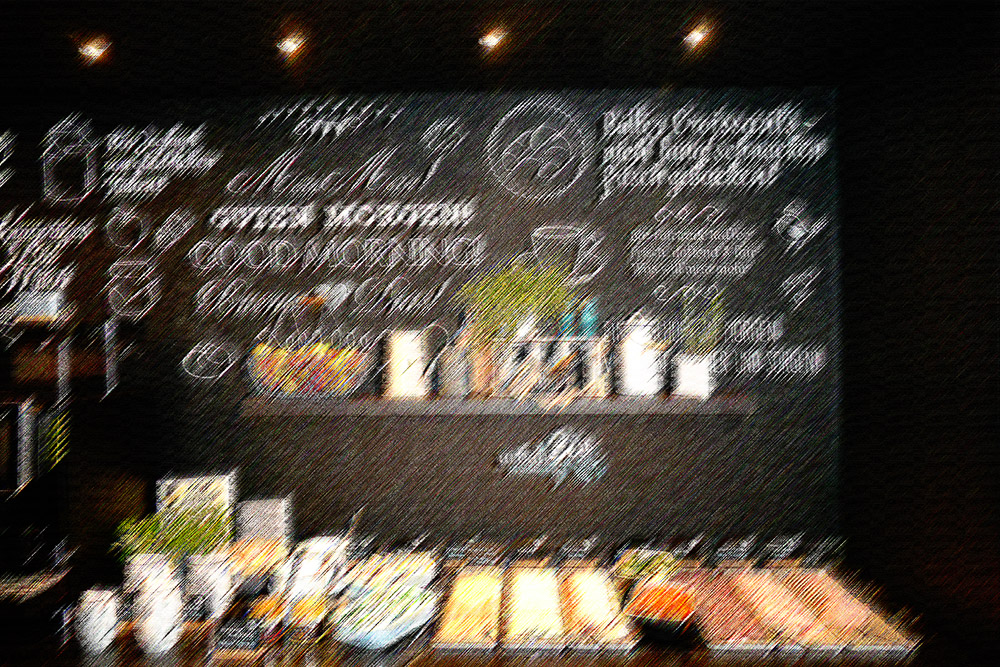
Honestly, I wouldn’t have even mentioned the next topic if some ladies at a hotel in Berlin hadn’t told me they were shocked. Did they find a dead body in the closet? Nope. They had to find out that in most German hotels, you have to insert your keycard in a slot next to the room door to turn the power on. Well, I personally, do not find that shocking but rather prudent and ecological since this way, guests cannot waste electricity while even not being in their room.
There is one downside to this: As you leave the room and grab your key, the power outlets will stop working; some get out immediately, some give you about 20 seconds before shutting down.
That means that you cannot charge your electric gadgets while you’re gone. Although I know the drill, it happened to me that I was supposedly charging my laptop while having breakfast. As I came back to the room, I found my computer still dead.
What actually might shock foreign visitors is the fact that you go to a German sauna naked. Butt naked. No trunks, no bikini. Also into mixed saunas. Generally also at hotels.
While at German SPAs they actually urge you to take your swimwear off – for hygienic reasons, I think that at hotels, they won’t kick you out if you are wearing your swimsuit.
But then, don’t let all the stark-naked German guests sitting next to you irritate you – that’s how we are going for a shvitz – women and men in the same cabin.
One tip – nobody will mind if you sit in the sauna wrapped in a towel. This way, you are basically fully covered. In any case, you have to spread towels under yourself. No part of your body is supposed to touch the wood. In general, hotels with a SPA supply you with enough towels and sometimes even a robe.
One last thing: It is customary to leave a small tip of about 1 €uro per day for the cleaning person. They get badly paid for doing an unattractive job, so they’ll be grateful for a small gratuity. Also, the bellboy will appreciate a little tip for his assistance.
Hostels
Obviously, besides hotels and guest houses, there is also Airbnb – and there are hostels. And you should really check out where there is a hostel at the place you intend to visit because some of those hostels are in just amazing locations.
In Hamburg, the hostel Stintfang is right above the harbor – it’s a prime location with a million-dollar view; but you don’t have to pay a million dollars to stay there.
In Berlin, there is a hostel a stone’s throw from the famous Alexanderplatz, connected to two mid-range hotels. This way, you can enjoy their facilities like bars and restaurants, too – for a fraction of their rate.
At Lübeck, the hostel is housed in a classicist villa at the Mengstraße. It’s one of the city’s most beautiful streets in the very city center – you simply won’t find a better location. On the island of Heligoland, the hostel is on the isle’s nicest beach overlooking the north sea – no hotel there is in such a great location.
Since hostels are not all stinky dorms but offer also single and double rooms, they might be an option even for those who are not pure-bone backpackers.
Eating and Drinking
I won’t bore you with what to eat or drink in Germany. Of course, there are these traditional foods – whereby, here too, most foreigners are referring to the heavy Bavarian cuisine. The food at the northern coast is – surprise – very much fishy….in a good, fresh way.
Although we got conquered by American chains such as McDonald’s and KFC, there are still these good old Wurstbude, wurst stands. They are selling different types of sausages, mostly accompanied by fries or potato salad. An unhealthy yet traditional German snack.
Anyway, with all the migrants over the past six decades, there are all imaginable cuisines to be found at least in the big cities. Yet, I think every village has at least a Greek restaurant, a Pizzeria, and a Turkish kebab joint.
However, some visitors might notice some differences at certain restaurants.
Not your new best friend
First of all, it is rather seldom that you are greeted and seated. I mean, if the waiter sees you, he’ll say Guten Abend, good evening. But there won’t be a host waiting for you, leading you to your table, asking how your day was.
You come in, take a look around and choose where you want to sit – unless, of course, there is a Reserviert sign on the table.
Unless it is a really fancy place, it is not a no-no asking people if you can join them if there are available chairs at their table. You wouldn’t do that if the place is half-empty, but if that’s the only chance to get a seat, it’s totally okay; albeit they might not look like it’s okay with them during the first couple of minutes. But, whatever, life is hard.

Once you sit, the waitress will bring you the menu – possibly she’ll have an English one for you – and ask if you’d like to drink something. She will not tell you her name, nor explains that she’s your waitress, and she probably won’t ask you how you are doing. She’ll be nice, but she won’t be beaming as if you are her long-lost half-sibling.
She’ll give you a couple of minutes and then come back and ask if you’re ready to order. If you need more time, that’s fine, she’ll be back.
Not your babysitter
Once you’ve ordered, she’ll bring your food, maybe she’ll ask if you need more drinks – and that’s basically it. She won’t come and ask every couple of minutes if everything is okay or if you need something. She presumes that if you do, you give her a sign.
At some restaurants – mainly Italian and Greek ones – you’ll get a little starter like homemade bread with olive oil and salt or some dips. Yes, these are free, nobody will put something you didn’t order in front of you and then charge for it.
Whereby, in some traditional Bavarian eateries, this might be the case with the Brezels and bread rolls. But that’s pretty old-fashioned and won’t probably happen anywhere outside of Bavaria.
Greeks – and sometimes Italians – also offer you a shot after your meal, mostly Ouzo respectively Grappa, but sometimes you can choose another one. This is free, too.
No Free Refill
Your waitress, however, won’t bring you free water. If you order water, she’ll presume that you want bottled water, still or sparkling, whereby sparkling can be light or strong. If you are precise that you’d like tap water, she might charge you maybe 1 €uro for it. Not every restaurant does that, but it’s not impossible that they might charge.
Also, when she asks you if you want more drinks, she’s not talking ’bout free refills! I think it’s only at the restaurant at IKEA that you pay for the glass and can get refills at the soda fountain as much as you want; no wonder, the drinks at their soda fountain are just disgusting.
Anyway, you’re not at IKEA, so no free refills; you’ll be charged for every full glass that she puts in front of you.
When she sees that you are done eating, she’ll clean your table – and maybe ask if you care for some dessert or more drinks.
She won’t bring you the check – until you ask for it.
You can sit for hours and hours, she won’t bring the check.
Germany is a tipping country
The check – this is my big moment to dispel a terrible, terrible myth:
You! Do! Tip! Your! Waitress!
I don’t know who invented this cock-and-bull story that you don’t have to tip in Germany, I only know that it is not true at all.
Fact is, you don’t tip always as much as for instance in the US, you don’t give 20%.
But you give 10% – that’s totally customary.
My daughter has a student job as a waitress in Hamburg and who doesn’t tip her? Americans! Because they’ve heard this stupid rumor that you don’t have to tip.
You do.
10%.
You also tip cab drivers, hairdressers, the bell boy at your hotel, and the room maid – I’d say 1 to 2 €uro.
Now, the last thing before you make your dinner reservation: Doggy bags.
Well, unless you are at a really fancy restaurant, it’s not a no-no.
I only assume that you won’t be placed in this dilemma too often since the portions at German restaurants aren’t as huge as e. g. in the United States. You’ll probably be able to finish your meal on the spot. However, if you’d like to take leftovers with you, ask for them, if they have adequate packing material, they will happily wrap it up for you.
Shocking!
Especially if you are coming from outside of Europe, you might find certain things a bit irritating – or even shocking; and it will be beyond the fact that you have to use your key card to turn on the electricity in your room.
Nudity
Germans are relatively liberal when it comes to nudity. While soft or hard porn is not shown on TV – as some people might have heard – nudity is not porn. And seeing naked breasts will be…whatever.
Topless sunbathing is totally ok, however, if you want to enjoy the beach naked, you should go to the designated area – called FKK, Freikörperkultur, nudism. Here, on the other hand, everyone has to be naked.
Also, when walking through parks in big cities such as the Englischer Garten in Munich or the Stadtpark in Hamburg in summer, you might spot someone sunbathing nude. Don’t call the cops, it’s not a perve who only forgot his raincoat, it’s a person who wants to enjoy the sun on the entire body – and nobody cares.
As I wrote already in the hotel section, in Germany, you also go to the sauna naked. It’s not an option, it’s an obligation. If you wear trunks or a bikini, you’ll be requested to take it off. If you feel uncomfortable, you can cover up by wrapping a towel around you.
I could imagine that at the hotel saunas, they are not as strict as at the public SPAs as a courtesy to foreign guests, but even there, I’ve seen signs saying nude zone.
Red Light Districts
Prostitution is legal, but takes place visibly only in certain red light areas, often around the main stations, in Hamburg also around the world-famous Reeperbahn – where, by the way, the Beatles began their career. In these areas, you’ll also find pertinent shops and it might irritate you that they are displaying their merchandise in the window just like any other store.
That brings me to a revelation that I had only recently: At one of the drugstore chains, I spotted dildos on a shelf, interestingly next to tampons. I wonder if it was like the merchandise-to-insert section.
However, meanwhile, they were moved next to the condoms, which is just as fitting – no pun intended.
Sanitary
Talking ’bout tampons: Those do not come with an environment-unfriendly cardboard apparatus, they are inserted manually. Also, you don’t get an extra brown bag for them; Germans – and basically all other Europeans – are not ashamed of sanitary products.
Drinking Age
Since the legal age in Germany is 18, everything legal goes – and that includes, of course, going to clubs and drinking alcohol. If you’re legal, you’re legal, right?!

However, if the parents or other adults entitled to custody agree, youngsters between 14 and 16 years of age are allowed to drink beer and wine. Still, in general, only from the age of 16, young people are allowed to buy these soft alcoholic beverages and consume them. To buy hard alcohol, the age limit is 18 and so is the purchase and consumption of cigarettes.
Possession of Marihuana, by the way, is a legal grey zone. Basically, it’s illegal, but minor quantities for personal consumption are being tolerated and not prosecuted. Okay, but how much is a minor quantity? This, dear stoners, depends on the federal state as well as the judge as well as the altitude of the sun.
Okay, I admit to having made up one of those.
However, the very clear and reliable answer is: It depends.
Visiting Times and Opening Hours
Hours – a day in Germany has 24 hours and we show it: There is no a. m. / p. m., there is 1 at night and 13 at daytime. You’ll have breakfast at 6 in the morning and dinner at 18 in the evening.
However, f you tell someone the time, you usually don’t say it’s eighteen, you say it’s six.
So now that you know this drill, let’s explore the German cultural life before they close – usually around six in the evening, hence 18hrs.
Who? Well, the 6,372 German museums and 470 galleries together welcome a total of about 118 million visitors every year.
In general, they are open from 10 a. m. to 6 p. m., some are open on Thursdays a bit longer.
Cultural Treasures
The best museums in classic German art are in Berlin and Munich. Great temporary exhibitions are also taking place in Frankfurt and Düsseldorf.
But you’ll be surprised to find outstanding exhibits in small, pretty dull places like Hagen and Wolfsburg. If you are an art aficionado, these two places – and many more – are worth the detour.
At Wolfsburg, you might also be interested in visiting the Autostadt. It’s a mix of a theme park and a selling spot for the world-famous Volkswagen. Interesting and fun.
Make sure to check out the venues’ opening hours. Most museums and galleries are closed on Mondays.
Also, according to experts, there are incredible 25,000 fortresses, castles, castle ruins, and archeological monuments countrywide.
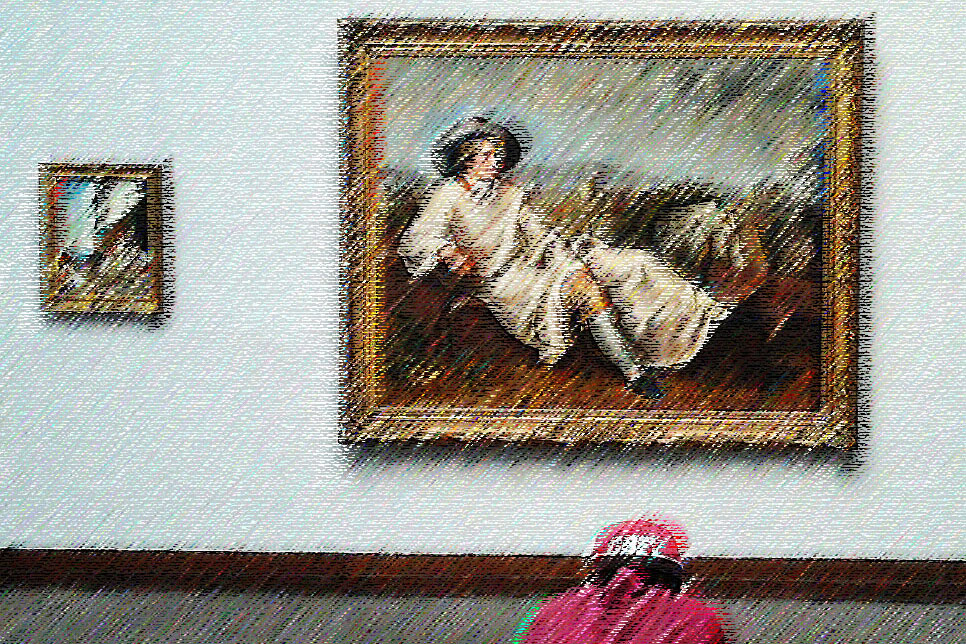
Germany has 44 cultural sites listed on the UNESCO world heritage list – the first one was the Cathedral in Aachen in 1978.
Besides many precious structures and sublime historic old towns, also places like the former colliery Zollverein in Essen is listed and definitely worth a visit. This former coal mine industrial site has been listed since 2001 and is one of the world’s most impressive industrial monuments. After the closure of the colliery in 1986, the complex has been transformed into a venue for art and design.
Natural Treasures
I have written a couple of posts raving about the fascinating tidelands in the Northern Sea off the shores of Lower Saxony and Schleswig-Holstein: World’s largest Tideland stretches in the North-West of Europe from the Netherlands along Germany’s Westcoast all the way up to Denmark and has been a UNESCO World Heritage Site since 2009. You definitely should not miss out on this unique phenomenon on your trip.
There are also some traditions on the UNESCO List of Intangible Cultural Heritage such as the traditional East Frisian tea culture: East Frisia has been a tea drinker’s region for around 300 years and has developed a unique tea ceremony which has been listed since 2016.
Germany is famous for its quality and assortment of bread. The German bakery trade, which has developed and preserved the standard and variety of German bread over the centuries, has been listed on the UNESCO List of Intangible Cultural Heritage already since 2014.
Shopping
Depending on where you’re from, Germany is not a cheap country, but it’s far cheaper than Switzerland or Scandinavia.
Prices
In general, the prices you see on the shelves or on the goods include all taxes – so this is what you pay at the cash register.
The only exception is mineral water, sodas, and beer – here, a deposit of 5 to 25 cents will be added at the cash register and you’ll get it back as you return the can or bottle.
If you don’t need it, it’s a friendly gesture to leave the empty container next to a trash bin. This way, homeless or poor people can collect it without searching in the trash.
Drugstores
No matter where you’re from, you’ll find that skincare products are way cheaper in Germany than anywhere else. Also, they are sold at drugstores that are a mix between a beauty shop and a convenience store. Here, you’ll find everything you need for housecleaning, but also some stationary, all sorts of skincare and beauty products as well as perfume.
They have also pantyhose, socks, and some underwear. You can get stationary and print out your pictures right on the spot.
To top it off, they also have chocolate, candy’n’cookies as well as salty snacks in store, soft drinks, wine, sparkling wine, and a range of organic produce.
I love German drugstores, they are really my addiction – I always buy far more than I intended.
The only drugstores that keep with the German ones are those in the United States, withal, they are much more expensive.
Drugstore or Pharmacy?
Drugstores also have some OTC medications such as soothing ointments, eyedrops, decongestant nasal sprays, and all kinds of dressing material in stock. However, the German medical products act is very strict, you won’t get serious drugs over the counter.
Everything prescriptive is not sold at the drugstores. You have to look for the big red A of the Apotheke, the pharmacy. Pharmacies are not at drugstores or supermarkets, they have to be individual stores.
Anyway, at the drugstores such as dm, Rossmann, Müller, or Budnikowsky, everything is of great quality. Also, you’ll be amazed at how cheap the cream and lotion and shampoo, and sun protection are. While brands like L’Oreal, Olay, Garnier, or Nivea are already a bit cheaper than in other countries, their house brands – which are excellent – are actually dirt cheap. Facial products start at 2 to 3 €uro, a big bottle of body lotion even at less than that. Good sun protection will set you back 3 to 5 €uro. Generally, they have also hypoallergenic, organic, and vegan lines that cost a bit more.
By the way, the internationally known brand Nivea has originated in Hamburg in 1882. While their snow-white cream – hence the name Nivea – in the iconic blue tin container is a classic, they keep developing various lines of beauty products, and there is even a fragrance with their distinctive scent. While you get all their products at drugstores and supermarkets around the globe, in Germany, there are also sold at Nivea’s flagship stores. If you like their stuff, it definitely makes a great – and useful – souvenir.
Supermarkets
Gone are the days that German supermarkets closed at 6 p. m. on weekdays and 1 p. m. on Saturdays. Today, bigger markets are open till after 11 p. m. – except for Sunday, that is.
On Sunday, you can do your shopping at train stations – at the big ones in large cities, there is sort of a Mall, the smaller ones have mostly just a convenience store and a newsstand.
In some large cities like Berlin and Hamburg, you’ll find maybe two or three supermarkets that are open on Sundays. But this is a big exception and you should make sure to plan your shopping accordingly. No clothing store, no department store, no drugstore will be open on Sunday – except those at train stations.
What I wrote about drugstores, i. e. that there is no pharmacy, etc., applies to supermarkets, too. Often, supermarkets will be much smaller than e. g. in the United States, they will often sell almost exclusively groceries and only very few toiletries or household products – and most of all: Nobody will pack your merchandise at the cash register; nobody but you!
So as you detect the first beep from the cashier’s scanner, get ready to stuff your groceries….yeah, well, where?!
Bring Your Own
Germans being so eco-conscious actually use totes and other reusable bags a lot. If you don’t have one on you, you can still buy a bag – either a big, reusable shopping bag from the market or a disposable bag that will often be paper since shops try to ban plastic bags. Actually, I love to buy those reusable shopping bags when travelling since I find they make a nice yet sensible souvenir.
Recently, grocery stores started to sell multi-use nets for your loose fruits and vegetables. Also, there are plastic egg trays on sale so you can buy eggs individually and don’t need to use disposable cardboard boxes to carry them home safely.
You see, a great effort is being made to reduce the unnecessary use of plastic. Often – like with the brand shopping bags – it’s definitely a win-win.
When travelling, I love to buy some ready-made food at supermarkets – like grilled chicken, hamburgers, salads…you know, this stuff they have at these hot food counters. Unfortunately, in Germany, they are not as great as for instance in the United States and England, but also in Italy or Portugal. You’ll get some stuff, but the choice won’t overwhelm you and it’s not so tasty.
Restrooms
I often hear – especially from people from the United States – that you have to pay for toilets in Germany. And once again I ask myself where this is coming from. Fact is, there are public toilet cabins where you have to pay – also for instance at train stations.
But at malls or department stores, they have bathrooms you can use for free – and nobody is checking if you are actually a customer.
Per contra, sometimes, there is a lady sitting there, making sure that everything is clean. And next to the lady is a small saucer and if you feel like it, you can leave some change. But you don’t have to do so. She’s not allowed to make you pay.
So if you need to go to the bathroom, you can go to any mall or department store.
Tax Refund
In Germany, the amount paid for merchandise includes 19 % VAT respectively 7 % for books, health products, and food.
The VAT can be refunded if the merchandise is purchased and exported within three months by a customer residing outside the European Union.
Before you purchase something, you should inform the retailer that you intend to export the goods. With your receipt, you will receive a so-called Ausfuhrbescheinigung, the export papers, or a Tax-Free Shopping Check.
When leaving the European Union – through Germany only – you have to present the export papers or the Tax-Free Shopping Check plus the original receipt of the store as well as the purchased goods to the Customs Service at the airport. Remember that the goods have to be unused in their original packaging and with the price tag on them. Also, you must leave Germany on a non-stop flight to a country outside the EU.
As you do have to show the goods, better put them in your carry-on since your suitcases might already be checked in.
On this site, you’ll find further information and also the refund points.
Communication and Connection
You’ll be surprised how underdeveloped Germany is when it comes to Wifi. It’s by far not available at every restaurant or in many public places. Also, on public transportation such as trains and buses, it’s a mess and very frustrating.
If you are a tourist or only a short-term visitor, a prepaid plan for your mobile phone will probably be the best choice for you. German mobile data packages have been consistently getting cheaper over the last years, and there are Telekom, O2, Vodafone, and other providers everywhere. Also, some stores like Tchibo or the discounter Aldi sell SIM cards and prepaid plans.
Voltage power in Germany is 230 Volts and the frequency is 50 Hertz. On most chargers or devices is somewhere a mark like 100-240V, 50/60Hz. This means that the device will work with an electrical power input between 100 Volts to 240 Volts, and AC current of 50 or 60 Hertz. Rechargeable batteries will automatically detect the voltage they are being fed.
Plugs in Germany are C and F.
In my post World’s Most Complete Travel Information, you’ll find a link to a complete list of plugs, sockets, and voltage worldwide.
Keep in mind that if you dump batteries – or other hazardous substances – in the regular trash in Germany, you’ll be fined. You have to return batteries to retail outlets for proper disposal. Also, many drugstores and supermarkets have special battery disposal bins near the checkout.
Health Insurance
I so wish that you’ll stay healthy during your stay in Germany! However, if you should have minor ailments, you can get some OTC medication at the Apotheke, the pharmacies, and even the drugstores have ointments, eyedrops, decongestant nasal spray, all kinds of dressing material, and more in store.
If you catch something more serious and you need to see a doctor, travel health insurance is crucial. Germany is not as expensive as the United States, but much more expensive than many other countries – and you won’t get lots of medication without a doctor’s order and prescription.
If you opt for German health insurance, check out the HanseMerkur. They offer travel insurance for foreign guests and have different plans. For example, the price for one trip up to 30 days costs 51 €uro. But they have more complete plans, also for long-term stays in Germany.
As I said, have a look at their website and see if they have a suitable plan for you.
In case of any other emergency, you can dial the phone number 112 around the clock to get in touch with any emergency service such as the police, the firefighters, or an ambulance. You can call from landlines as well as any mobile network free of charge.
Tourist Information
Every town, city, county, and federal state has its own tourist information service. As I wrote posts on many interesting destinations in Germany, I always added the contact details of the respective tourist information. Nonetheless, I cannot do that for every German Hamlet just in case. If you don’t find what you’re looking for on my blog, you’ll find it on google, and also the German National Tourist Board will be happy to assist:
Deutsche Zentrale für Tourismus e.V. (DZT)
Beethovenstr. 69
60325 Frankfurt am Main
Phone: + 49 – 69 – 97 46 40
Phew, this is such a long list! If you have been to Germany – what do you think:
Is it correct? Is it complete? Any alterations? Any suggestions?
I’d be very grateful if you let me have it!
Pinnable Pictures
I assume that you’ll like to have this post on hand once you start planning your trip to Germany, so here are some pictures to pin it:
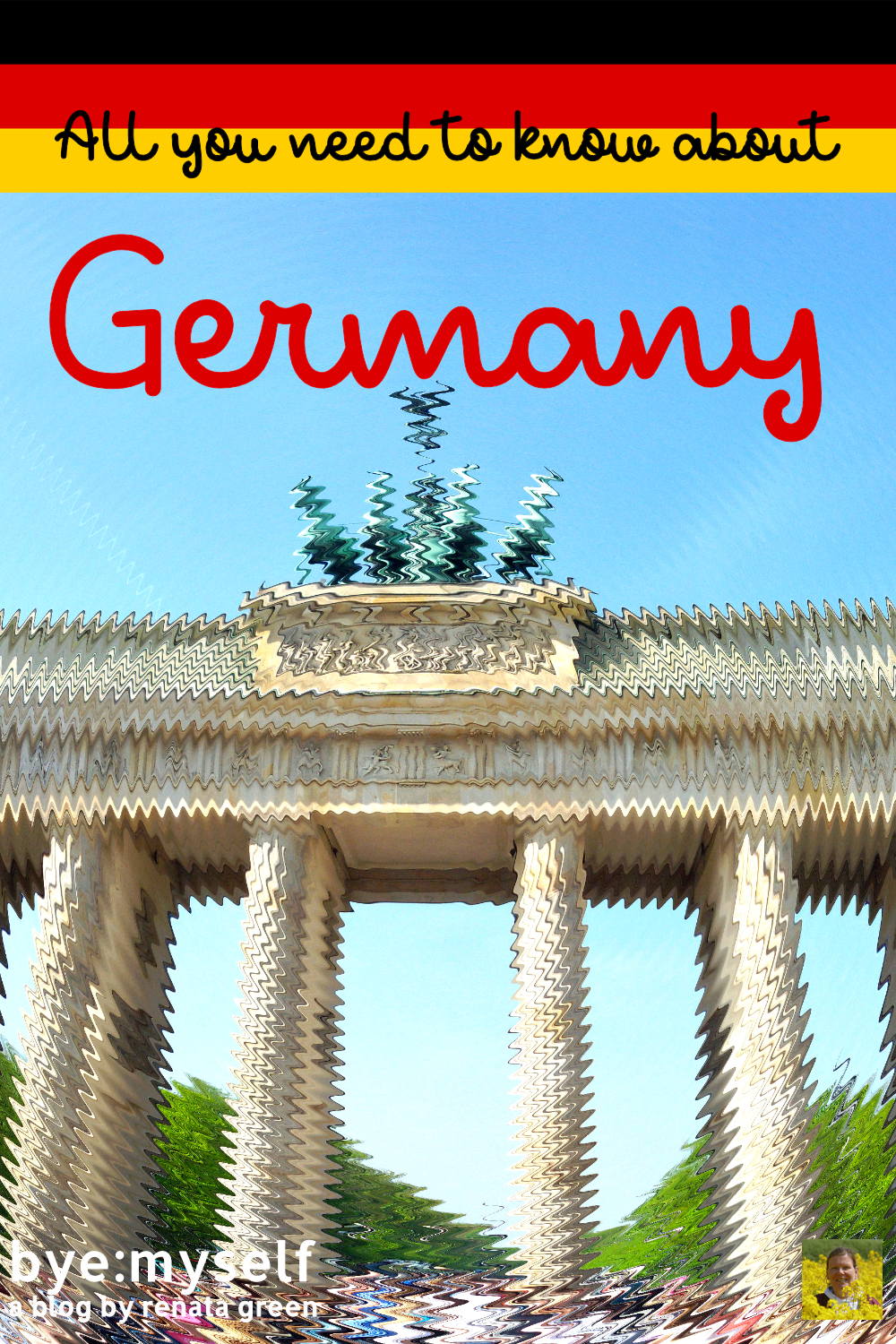

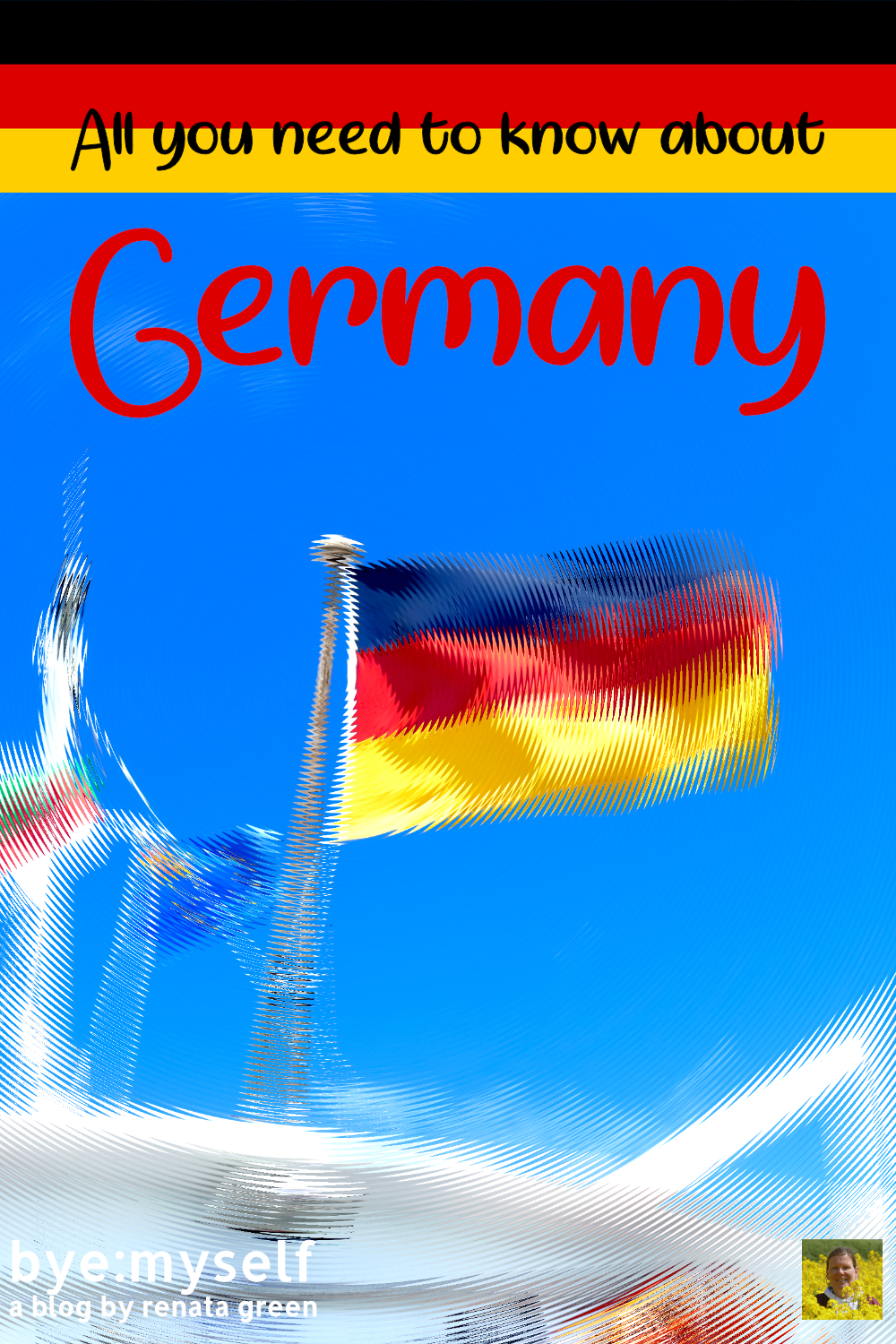
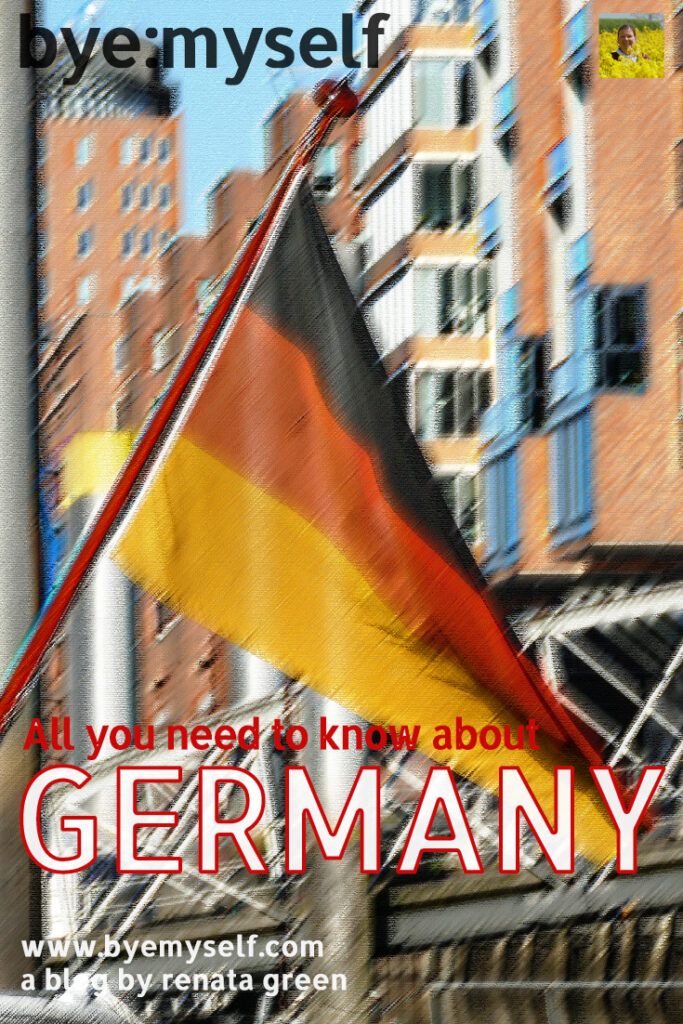
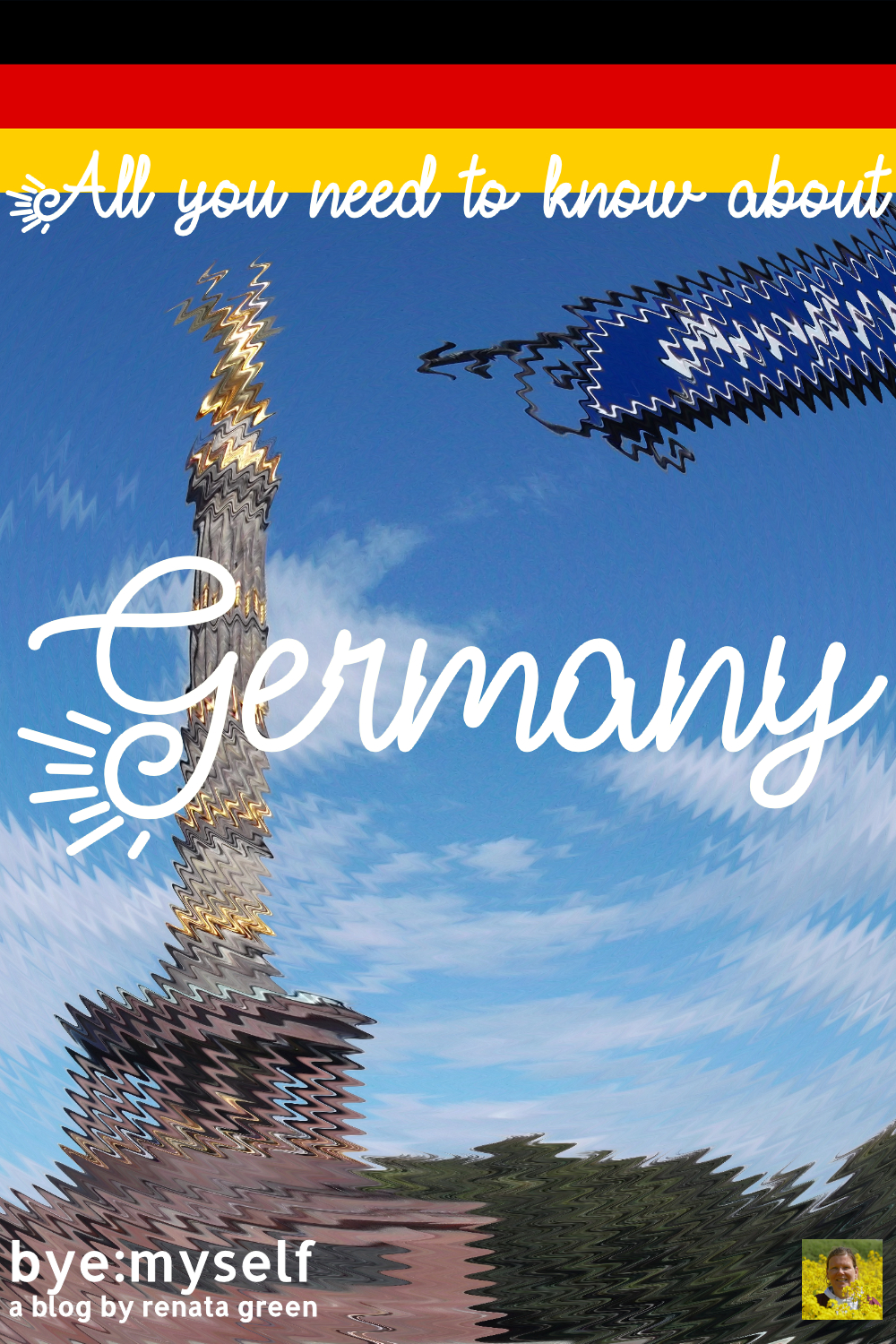
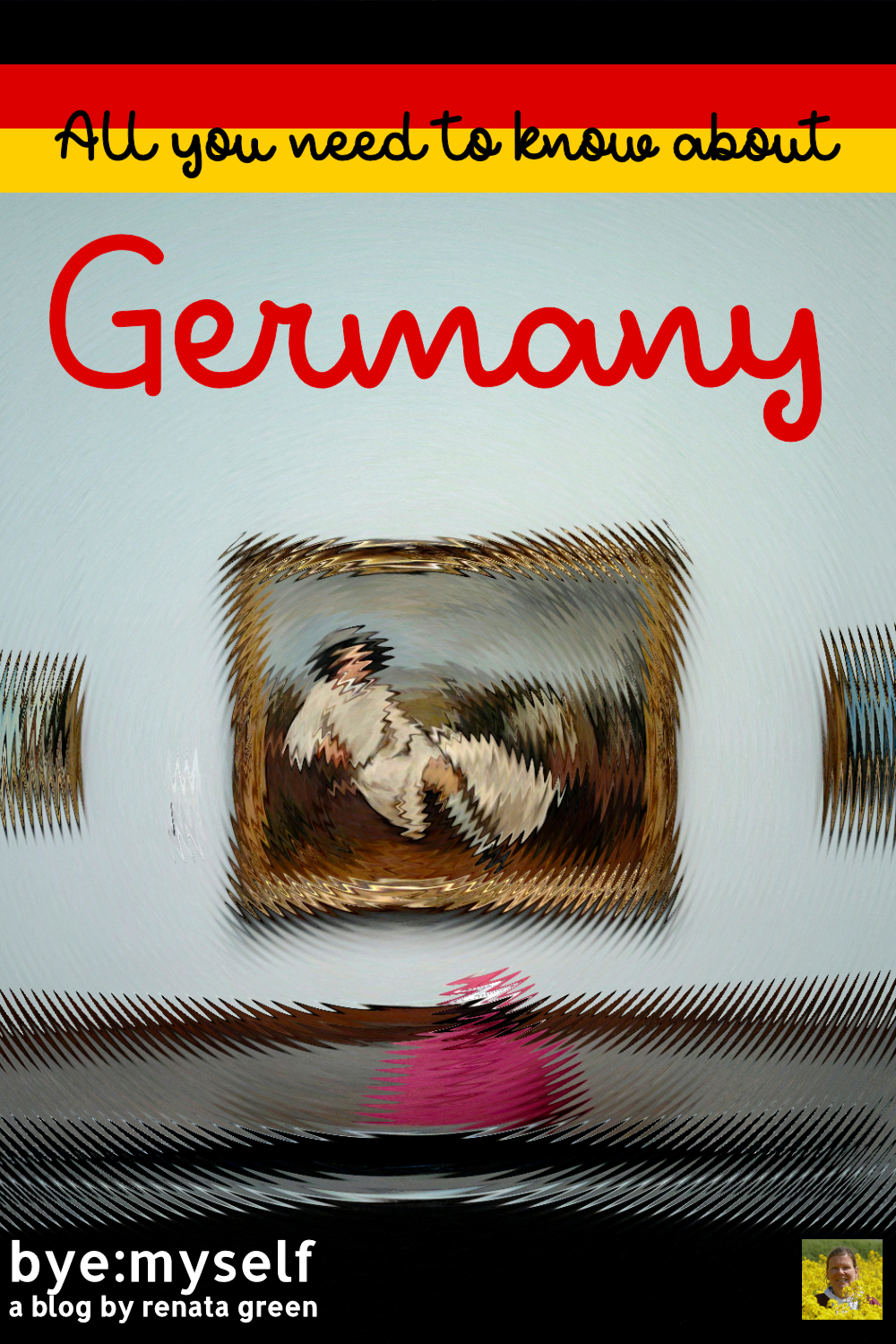
Did You Enjoy This Post? Then You Might Like Also These:
LUBECK – a guide to Germany’s most ravishing city
Guide to HAMBURG, the “Gateway to the World”
Weekend in DUISBURG – Steel And Style in Germany’s Ruhr Area
Büdelsdorf Revisited – bye:myself at the NordArt 2018
BOOMTOWN BREMERHAVEN – Complete Guide
Best Street Art in BERLIN
The Island of FEHMARN – Where Plan B is the Best Plan
How to Visit the DOCUMENTA fifteen in Kassel in 2022
*Important disclaimer: I did lots of research for this post and put only links here that look trustworthy. However, I’m providing all information and links as a convenience and for informational purposes only; they do not constitute an endorsement or approval of any of the products, services, or opinions of the corporation or organization, or individual. I bear no responsibility for the accuracy, legality, or content of the external site or for that subsequent links.







